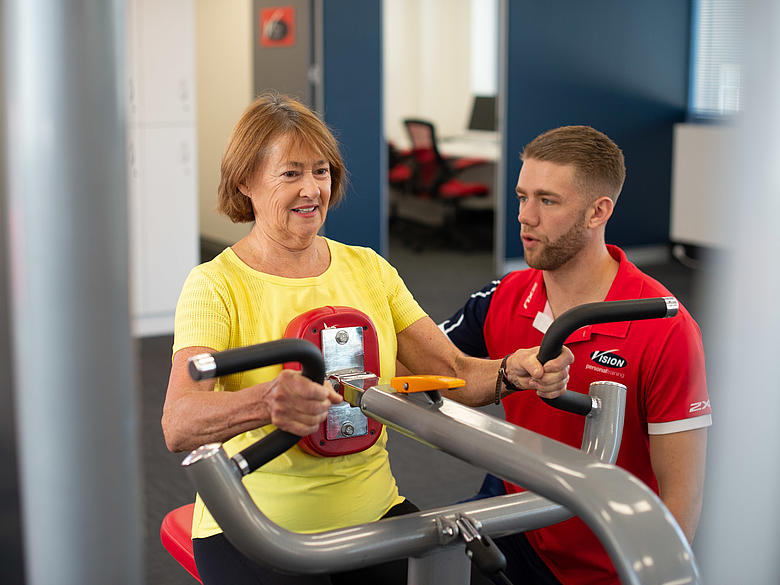As the hours roll by and the calendar days tick over, our population continues to age. With age comes change; change in posture, mobility, bone density, muscle mass, coordination and general motor function. The importance of strength training amongst our ageing population with particular reference to the elderly population has become more and more evident. Statistically, the frequency of falls and injuries increases from the 5th decade in life*. An increase in physical inactivity and insufficient weight-bearing exercise is linked to strength loss and muscle loss.
In a very basic sense, strength training should be implemented to reduce the loss of muscle mass and the subsequent loss of motor function. When we increase our strength we increase our muscle mass, improving motor unit recruitment and improving the efficiency and rate of fire of motor units. Clinical studies have shown that 20-30 minutes strength training, 2-3 times per week, has positive effects on risk factors for cardiovascular disorders, cancer, diabetes, and osteoporosis**.
Science aside, let's look at the broader picture and how strength training in the elderly can be approached practically. The way in which we train has a great bearing on how we perform our activities in day to day life. Standing up from a sitting position, pushing heavy shopping trolleys, carrying shopping bags, standing for extended periods of time. All these exercises require some application of muscle force. These day to day activities can be reworked into a resistance program in the gym, using exercises that replicate force production in day to day life. So at the very least, strength training physically improves quality of life. When linked in with the numerous other physical, psychological and neurological factors, the benefits speak for themselves.
Do you have family members or friends that aren't taking part in any form of structured resistance? Speak to your trainer about the benefits of getting your loved ones involved, there is no better time than the present.
* Orr R, Raymond J, Fiatarone Singh M. Efficacy of progressive resistance training on balance performance in older adults. A systematic review of randomized controlled trials. Sports Med. 2008;38:317-343 **Liu CJ, Latham NK. Progressive resistance strength training for improving physical function in older adults. Cochrane Database of Systematic Reviews. 2009;(Issue 3) Art. No.: CD002759. DOI: 10.1002/14651858.CD002759.pub2
*Disclaimer: Individual results vary based on agreed goals. Click here for details.

